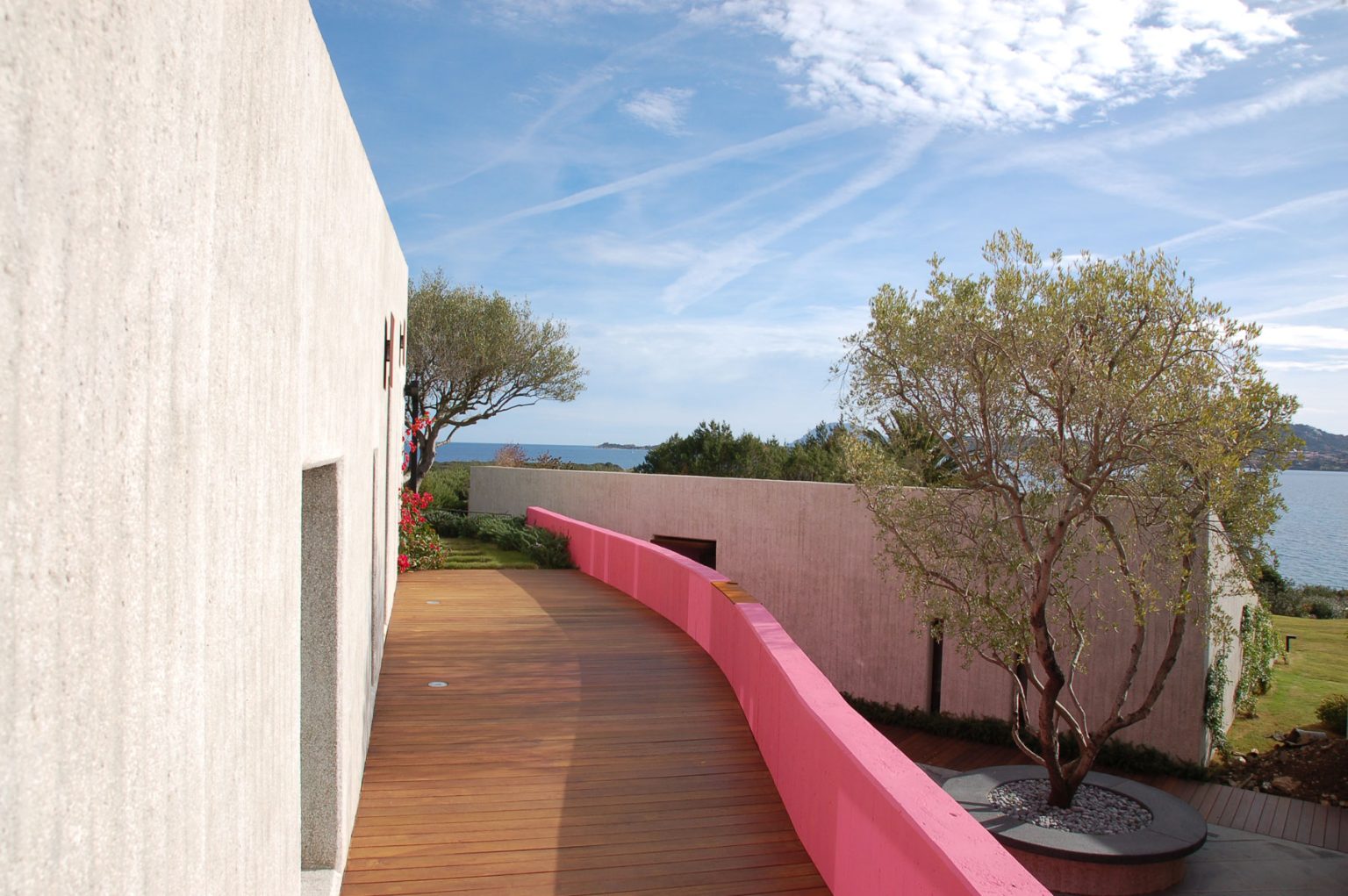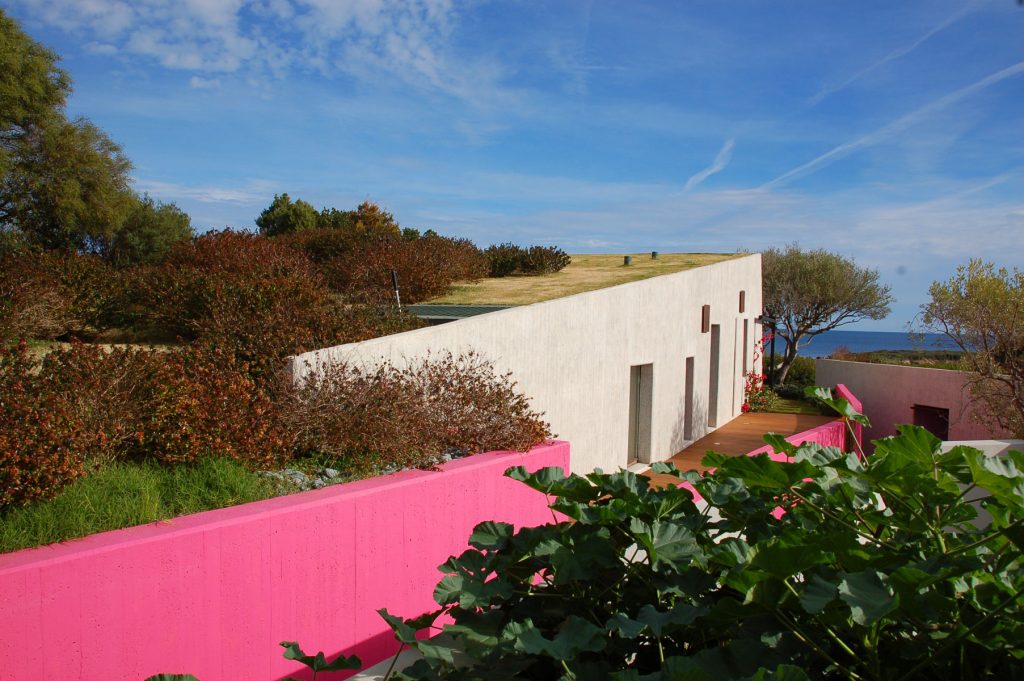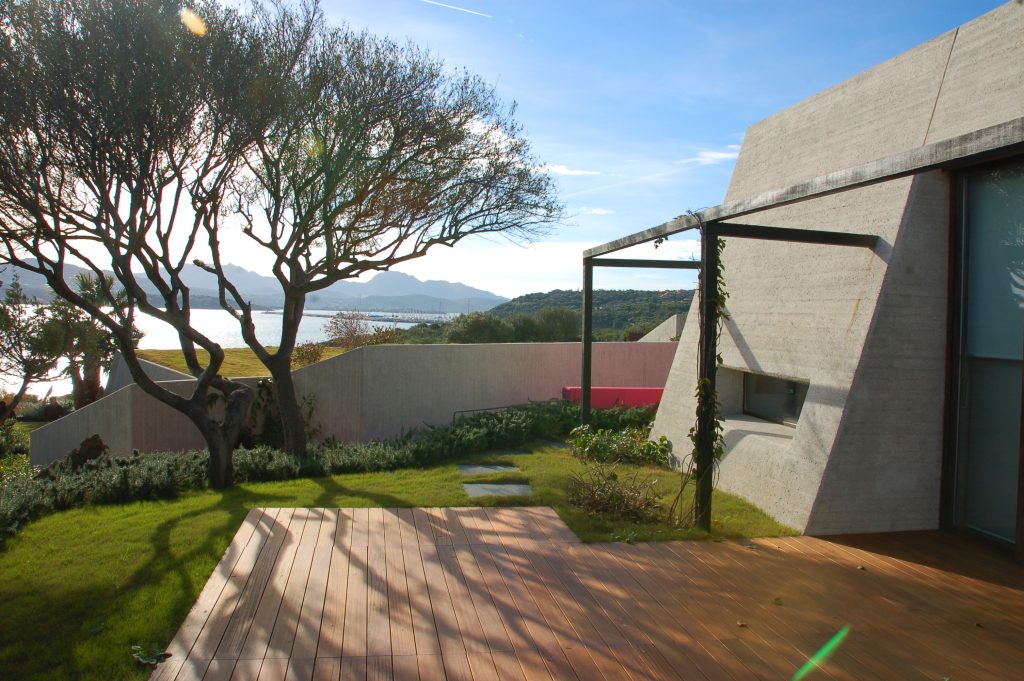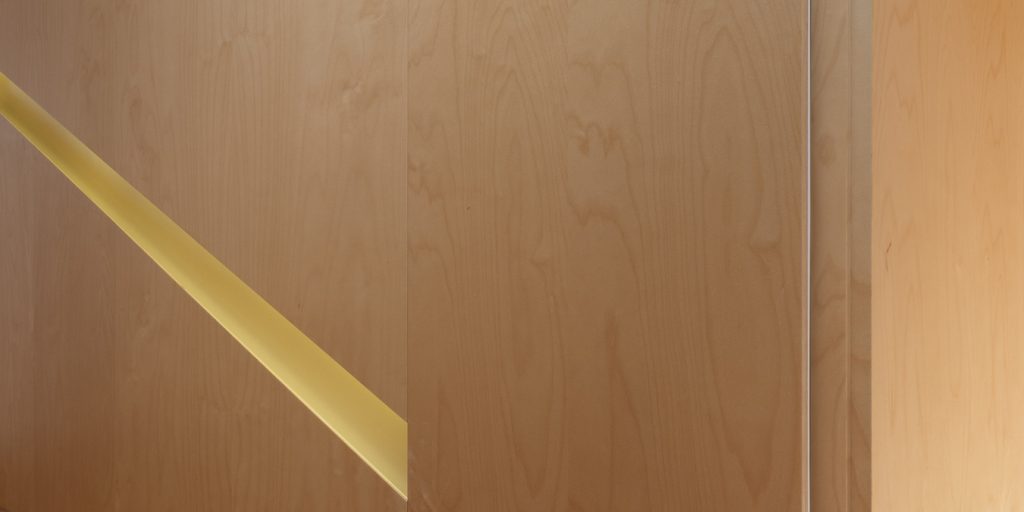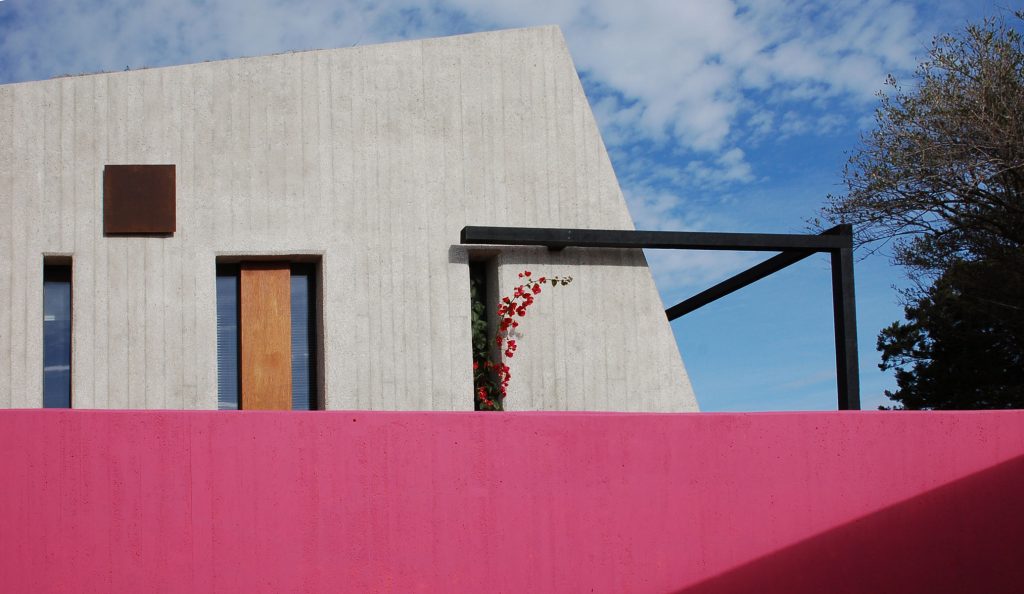VILLA B#2
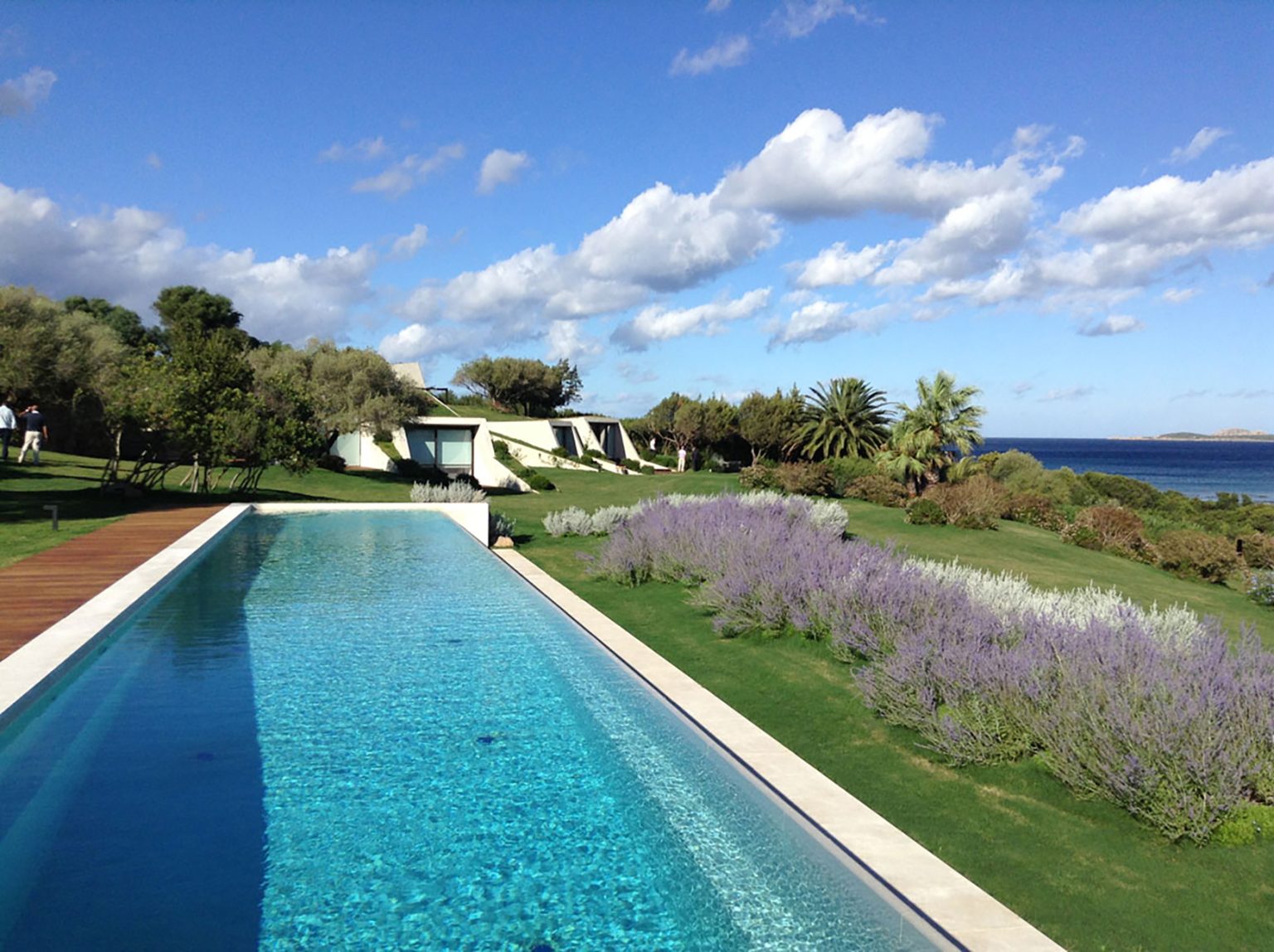
- Type Residential
- Location Sardinia, Italy
- Date 2012-2018
- Client Private
-
Size
450 sqm (villas)
3 ha (park) - Status Completed
-
Team
Ferdinando Fagnola + PAT. (Architecture, Landscape, Interiors)
Buonomo Veglia srl (Structural Engineering)
Studio Forte (MEP Engineering)
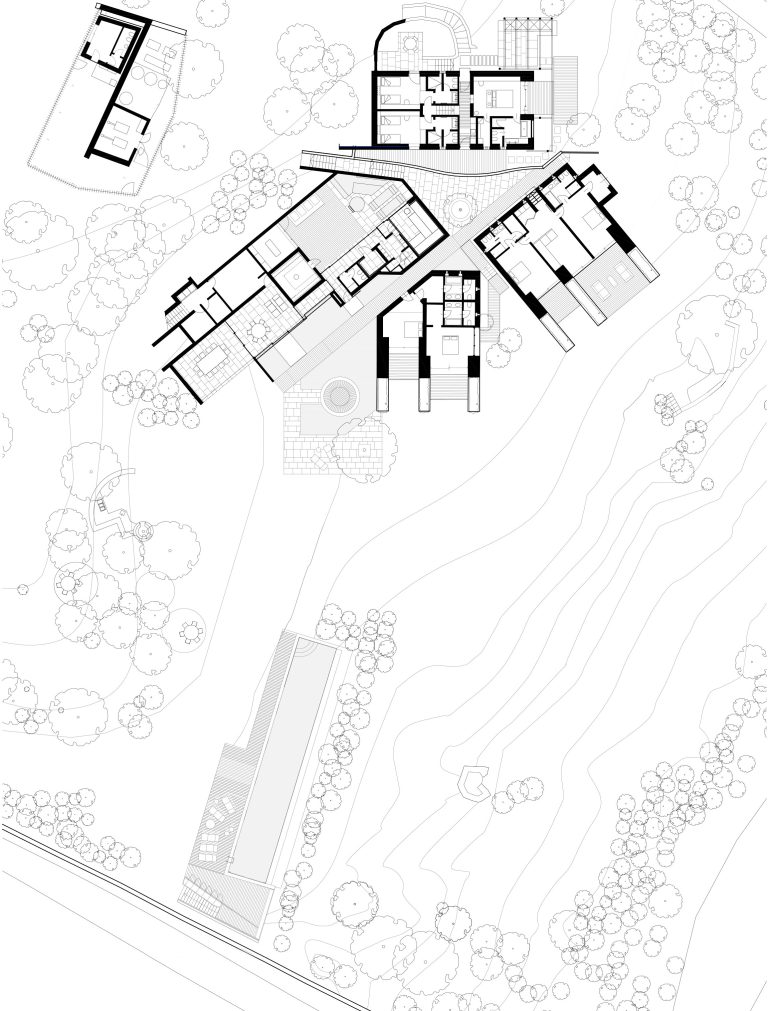
The villas are part of a masterplan conceived by Ferdinando Fagnola in the seventies, defined by semi-underground volumes in exposed concrete:
geological objects attacked by green and natural elements. These units were not built as intended: they were domesticated and forced into an imagery of granite coverings and pastel colors, as in most coastal architecture of the tourist boom.
We did restore the radical force of the original concept, while introducing a new organization and spatial flow, and custom designed interiors.
The renovation of the surrounding private park targeted the drastic cut of water consumption for maintenance. The landscape design reduced turf grass, in favour of maintenance-free mediterranean scrub. The remaining turf, including the green roofs, has been planted with a last generation bermuda grass hybrid, extremely resistant in hot and dry weather conditions. As a consequence, a reduction of 70% in water consumption is expected.
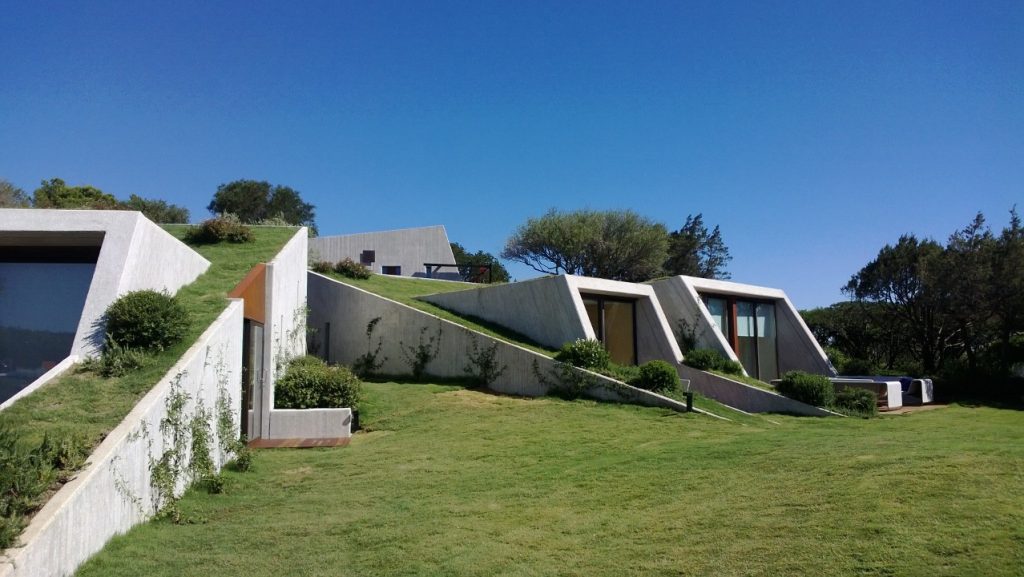
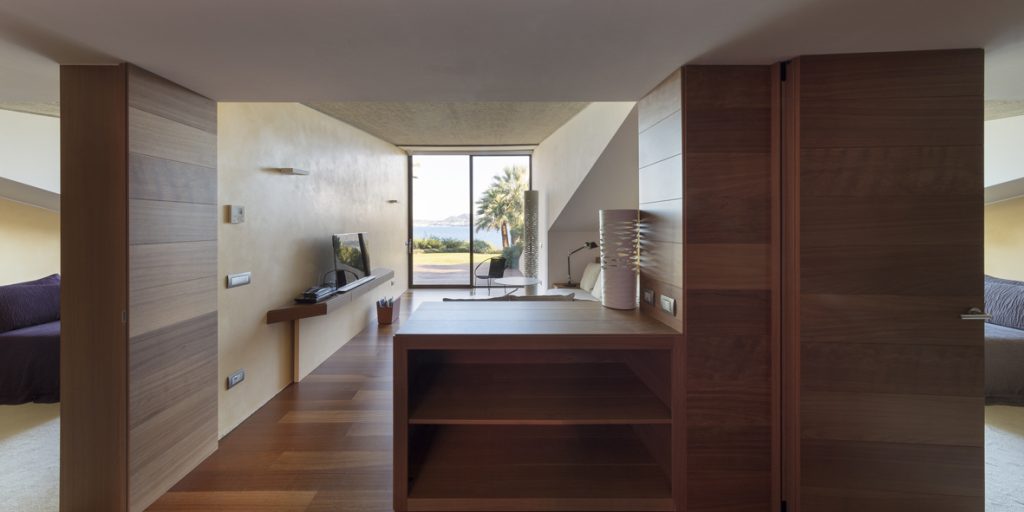
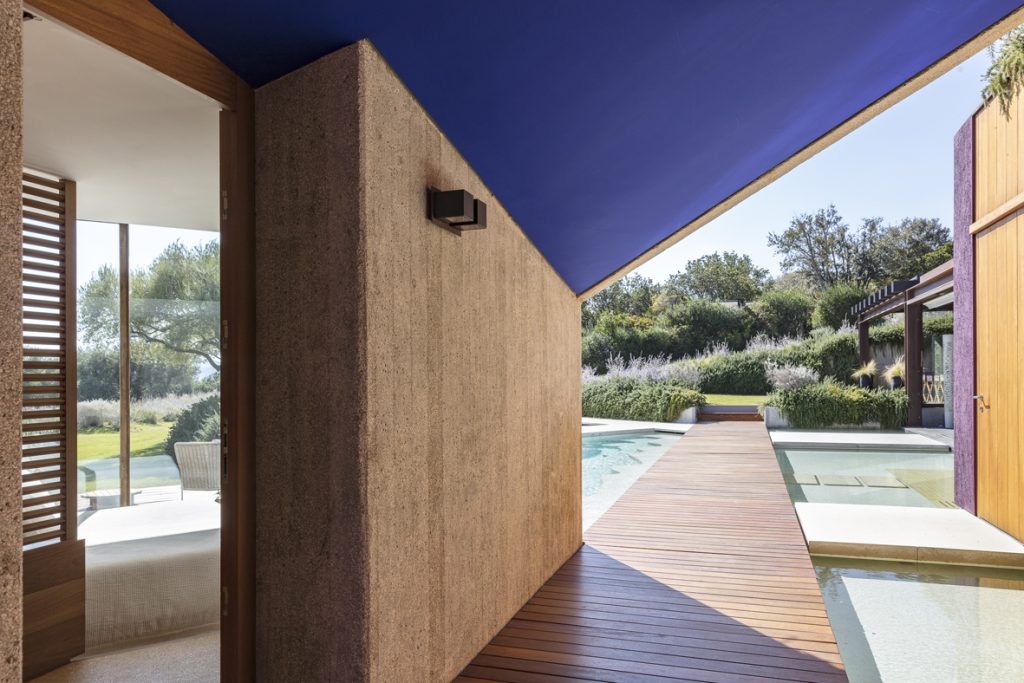
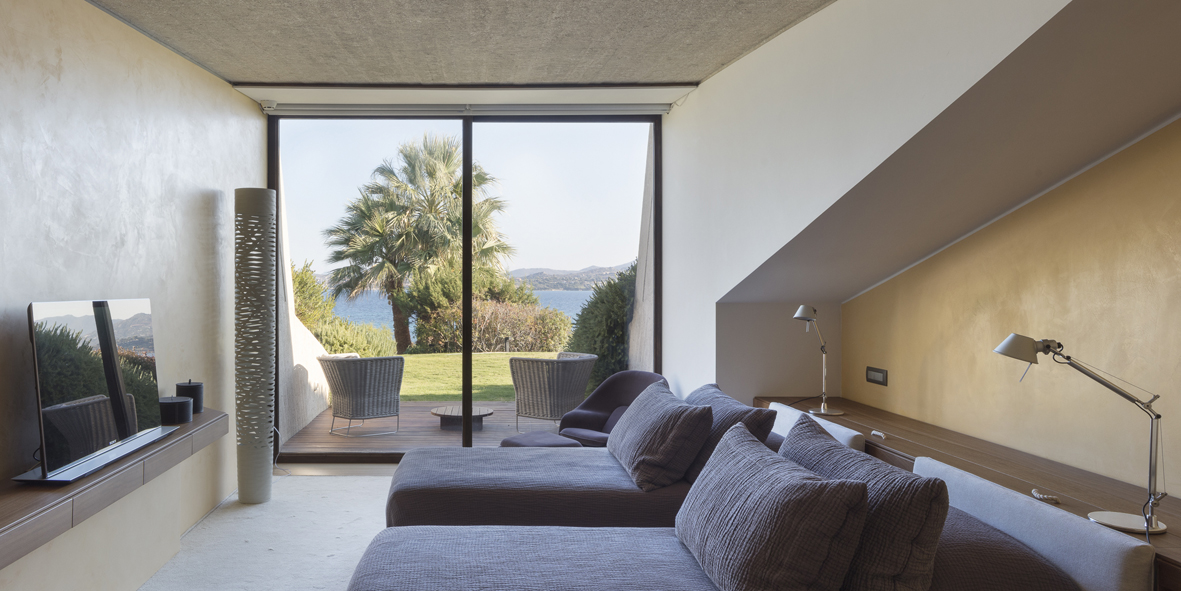
The villas are part of a masterplan conceived by Ferdinando Fagnola in the seventies, defined by semi-underground volumes in exposed concrete:
geological objects attacked by green and natural elements. These units were not built as intended: they were domesticated and forced into an imagery of granite coverings and pastel colors, as in most coastal architecture of the tourist boom.
We did restore the radical force of the original concept, while introducing a new organization and spatial flow, and custom designed interiors.
The renovation of the surrounding private park targeted the drastic cut of water consumption for maintenance. The landscape design reduced turf grass, in favour of maintenance-free mediterranean scrub. The remaining turf, including the green roofs, has been planted with a last generation bermuda grass hybrid, extremely resistant in hot and dry weather conditions. As a consequence, a reduction of 70% in water consumption is expected.
